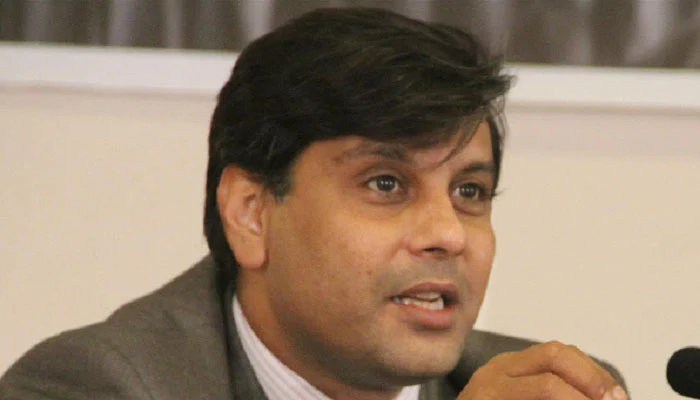- ISI, MI officials included in new JIT.
- JIT directed to submit periodic reports.
- CJP says court wants transparent probe.
ISLAMABAD: The federal government on Thursday shared the names of the members of a new joint investigation team (JIT) formed to probe the murder of journalist Arshad Sharif with the Supreme Court.
The government has proposed new names for the team after the apex court Wednesday rejected a JIT formed earlier by Islamabad Police and ordered that an “independent” team be constituted to probe the case.
Chief Justice of Pakistan (CJP) Umar Ata Bandial is heading a five-member bench that is hearing the suo motu case into the gruesome murder of journalist Arshad Sharif in Kenya on October 23.
The Kenyan authorities had claimed the journalist was killed in a mistaken identity case after which the African country’s Independent Policing Oversight Authority (IPOA) launched an investigation, the findings of which have not been released as yet.
Sharif fled Pakistan citing threats to his life after a number of treason cases were filed against him.
The apex court took notice and sought responses from the ministries of foreign and interior.
At the outset of today’s hearing, the federal government informed the court that a new JIT has been formed including DIG Islamabad Owais Ahmed, Director Cybercrime FIA Waqaruddin Syed, Sajid Kayani from Intelligence Bureau, Murtaza Afzal from Military Intelligence and Mohammad Aslam from Inter-Services Intelligence.
“We have received the response from the Foreign Office. According to Interior Ministry, the cabinet has asked the foreign minister to contact his Kenyan counterpart,” CJP Bandial said, adding, “The court doesn’t want o get involved in the administrative matters before investigations”.
At this, Additional Attorney General (AAG) Chaudhry Amir Rehman told the bench that they were launching the investigation into the murder immediately and the JIT would first record the statement of the slain journalist’s mother.
“The JIT will probe all the relevant persons in Pakistan and then start investigations in Kenya,” the AAG added.
The chief justice said that the court just wanted an impartial and transparent investigation. “The JIT can approach the Supreme Court in case it faces any hurdle in its investigation.”
Another member of the bench, Justice Mazahar Ali Naqvi inquired whether people named in the FIR would surrender.
At this, Justice Aijazul Ahsan said that those mentioned in the FIR can only be brought back through Interpol. “Once the JIT spins into actoin it can contact the agency.”
“How much time the investigation will take?,” Justice Mohammad Ali Mazhar asked.
To this, the AAG responded that the duration of the investigation depends upon the level of assistance provided by the Kenyan authorities.
The chief justice then directed the JIT to submit a progress report fortnightly.
The Supreme Court said that the panel has been formed in light of FIR and the office of SSP Operation Islamabad will provide assistance to the JIT.
“The investigation team will try its best to complete the work soon,” the AAG said.
“It is also possible that the accused appear themselves, and if they do not appear, legal action can be taken against them,” said Justice Mazahar Naqvi.
AAG Amir Rehman said the real issue is the role of the Kenyan police and the investigation conducted by them.
The Supreme Court said the JIT would use the option of mutual legal cooperation between the two countries and adjourned the hearing of the case till the first week of January.
While issuing directives to the JIT to submit periodic reports, the apex court asked it to inform the court in writing in case it faces any problems.
“JIT would submit progress reports to judges in chambers for review,” the SC stated.


 Latest News2 days ago
Latest News2 days ago
 Business2 days ago
Business2 days ago
 Latest News2 days ago
Latest News2 days ago
 Latest News2 days ago
Latest News2 days ago
 Business2 days ago
Business2 days ago
 Latest News2 days ago
Latest News2 days ago
 Latest News22 hours ago
Latest News22 hours ago
 Entertainment2 days ago
Entertainment2 days ago











